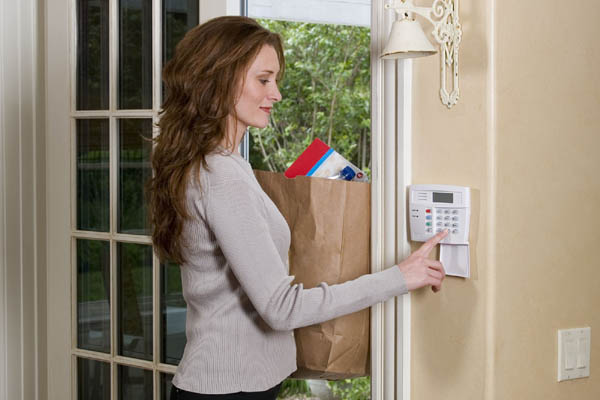It is estimated that nearly 3 million people will visit a hospital A&E department every year after being injured in the home, where under 16’s and pensioners are statistically at most risk. It is imperative that you safeguard your house and the possessions inside, not only from criminal activity but from internal accidents.
Here is a list of 5 simple steps you can use to stay safe and secure in your home:
1. Lock Doors
It may sound obvious but ensuring your front and back doors are secured at all times is crucial, along with any side gates and garage doors also. Treat unfamiliar visitors with caution, using a chain if you have one. Take extra care if on holiday for example also, inform trustworthy neighbours you will be away and invest in safety alarm systems.
2. Care with Electrical Products
Electrical accidents are potentially very dangerous and a major cause of accidents. Many house fires are sparked by unwatched, faulty or misused electric items. Be careful that you understand exactly how to operate items such as irons and microwaves and also not to overload plug sockets. Make sure electrical items are switched off before you go to bed or leave the house.
3. Test Household Items
Many accidents are caused from a simple lack of care with products, especially electrical appliances. The kitchen is the main centre of injury, where some people do not correctly know how to operate such items as their oven or dishwasher. You can hire PAT-testing equipment from companies such as MCS Test Equipment to do this; they’ll also give you guidance on how it all works. Understand exactly how to work every appliance in your home, reading manuals carefully or asking advice if unsure.
4. Safety for Children
As children are naturally more inclined to mess around with items in the home, appropriate safeguards must be in place to keep them protected. Keep dangerous items out of reach, such as bleach and kitchen knives, along with electrical sockets and wires. Maintain supervision at all times, especially for younger children.
5. Prepare for Accident
Accidents are sometimes bound to happen no matter how much planning has been committed beforehand. In this sense, make sure your house is equipped to deal with minor incidents and emergencies that do occur. Stock up on simple medical equipment, such as bandages, plasters and tablets, having a fully stocked first aid kit at all times in the house as well as your car. Make sure everyone in your home knows who to contact if something does go wrong, such as neighbours and the local doctor. In the event of a fire, ensure smoke alarms are working and also plan any viable escape routes.
The layout, security requirements and interior possessions of every home up and down the country will differ. Make sure that you and everyone in your house are well accustomed with how to stay safe in both protecting your property from outside intrusion or potentially dangerous accidents inside.

